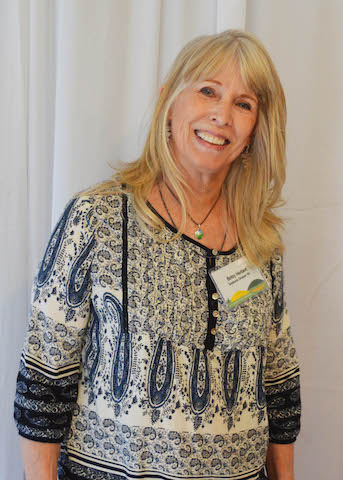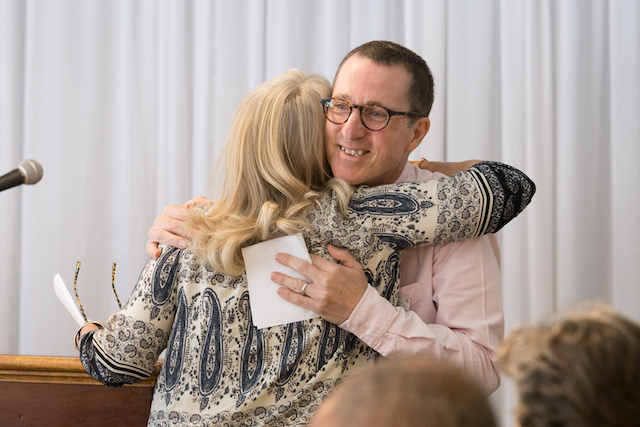When the small California mountain town Felton fought to buy back its own water from California-American Water and won, it was a David versus Goliath moment for Santa Cruz county.
Helping guide residents was UC Santa Cruz Environmental Studies alum Betsy Herbert (Ph.D. 2004) who received a Switzer Leadership Award in 2005 to act as a liaison between the San Lorenzo Valley Water District & the Felton community during the transition process.
For years, Herbert followed closely how the small mountain town battled the corporate giant.
After California-American Water took over management of Felton’s water in 2002, local residents experienced price hike after price hike. The private, multi-national company asked for a drastic 78% increase. Then they requested an addition 60%.
“The money was going straight to shareholders, not back into their water system,” recalled Herbert to a roomful of graduate students a panel event over alumni weekend April 29. Her talk was part of a day’s celebration that included an awards ceremony to honor the inaugural Distinguished Graduate Student Alumni Awardees. Herbert is the 2017 recipient representing the Social Sciences Division.
The cash-strapped community of Felton mobilized. The community group FLOW (Friends of Locally Owned Water) was established to come up with a way to acquire the town's water rights. After knocking on doors across the county, a proposal was put on the ballot. With a 75% majority, the town voted to tax themselves to raise the $11million needed to purchase the water rights from the corporate giant and turn it into a public utility. But what seemed like a success was soon a roadblock. California-American Water refused to sell. FLOW had requested the local public water district, San Lorenzo Valley Water District, to use the $11 million bond to acquire the Felton water system from California-America Water, but California-America Water refused to sell. San Lorenzo Valley Water District was forced to use eminent domain, a lengthy summons where the state must step in to take private property for public use. California-American Water finally yielded.
With her assistance, the San Lorenzo Valley Water District successfully completed the public procurement in 2008. The story made national headlines, with reports in Wall Street Journal and other news outlets. The little mountain town became a model for other communities wanting to acquire water rights from big multinational companies and turn them into public utilities.
Taking on big businesses and corporations was not new to Herbert.
In the 1990s, the activist battled the logging industry to protect California’s redwood groves from massive deforestation. In 1993, Herbert took her experiences to paper and penned Don’t Wait for the Chainsaws...Fight Back! a guide for concerned citizens on how to exercise their legal rights and navigate the complex government regulation of commercial logging plans. The handbook was updated in 2009 by UCSC alum Jodi Frediani (Stevenson ’91, arts) and continues to be used by Californians today.
It was her passion for protecting forests in the Santa Cruz Mountains that motivated Herbert to pursue a graduate degree in Environmental Studies at UCSC. Concerned by irresponsible timber harvesting near her home in Bonny Doon, the activist wanted a scientific appreciation of how to best protect and promote best management practices of forests and watersheds on the California coast.
Herbert approached environmental policy expert Daniel Press and after a rigorous qualification process matriculated into the Environmental Studies graduate program.
“For her dissertation, Betsy drew wonderfully on her background: as an activist, she had worked hard to ensure that forested watersheds in our region would be managed wisely, especially in ways that would protect water quality,” said Press at the awards ceremony.
“Betsy’s work was pragmatic, illuminating, interdisciplinary and tremendously helpful – I guess the same could be said about Betsy herself!” he added.
After serving as a community liaison to the town of Felton, Herbert continued working as an environmental analyst for the San Lorenzo Valley Water District until she retired in 2014. From 2001 she served on the board of directors of Sempervirens Fund, the oldest land trust in California who in the early 1900s helped establish protected recreation areas including Big Basin Redwoods State Park. Herbert now chairs the Science Advisory Panel.



